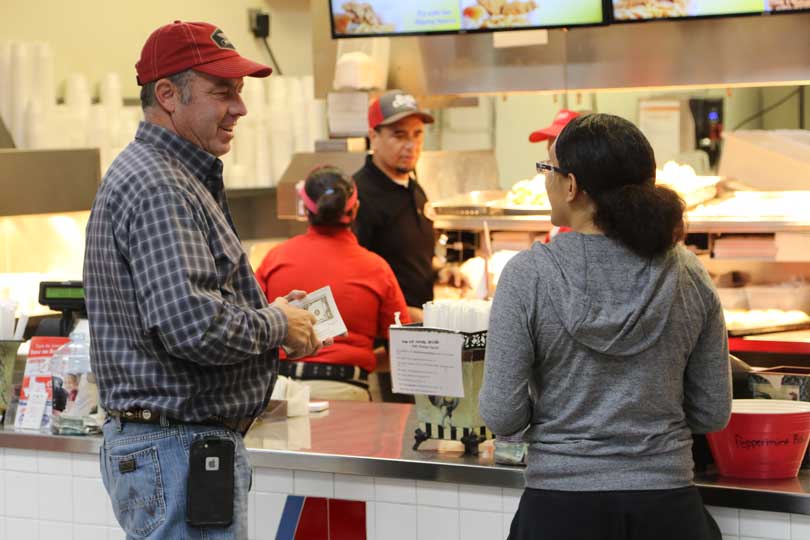By Jennifer Dorsett
Field Editor
Winner, winner—cheap chicken for lunch! Customers at four Bush’s Chicken in Waco recently got a side of agricultural advocacy with their lunch when McLennan County Farm Bureau (CFB) hosted its annual Food Connection event.
McLennan CFB sponsored the event to connect consumers with local farmers and ranchers and foster conversations about where and how food is grown.
“We’re trying to raise awareness and combat some of the myths people believe about food animals and how they’re treated,” Kevin Huffman, McLennan CFB board member, said.
The group purchased four-piece chicken tender meals at a fraction of the normal cost to demonstrate how much of the food dollar goes back to farmers and ranchers.
“Out of the $8 the meal normally costs, farmers receive around $1.20 of that,” Shane McLellan, McLennan CFB vice president, said. “The rest of it goes to marketing, advertising, transportation and all the other middle men along the way. People are really surprised to find that out.”
McLellan is a Texas A&M AgriLife Extension Service agent in McLennan County. He said it’s important to keep promoting agriculture, especially in an area that has become more urban over the years.
“If farmers don’t tell their story, someone else will,” McLellan said.
During the lunch rush, McLennan CFB leaders passed out small cards with an illustration of the farmer’s share of the food dollar on one side and information debunking the top four broiler chicken myths on the reverse.
“We’ve done this before at Vitek’s Barbecue and a couple of other spots over the years,” Tommy Kutscherousky Jr., a local farmer and McLennan CFB board member, said. “This year, we wanted to focus on a different commodity, so we went with chicken.”
Many diners said they didn’t realize farmers received such a small portion of the amount spent on food.
“We’re doing our best to help them understand their food is grown right here in their area by local people,” Kutscherousky said. “Using food purchases to illustrate that really makes an impact.”
It’s important to share correct agricultural information and build relationships with consumers, Huffman said.
“We feed our families this same food. We just want people to know about us,” he said.

